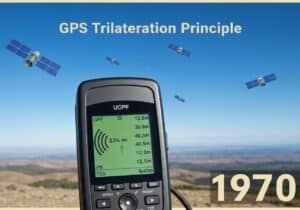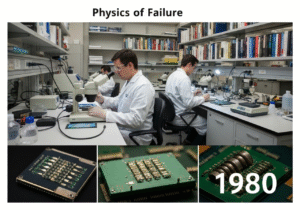
5G and 6G wireless networks represent transformative advancements in mobile communication technology, pushing data rates, latency, and connectivity density. 5G introduced innovations such as massive mimo, millimeter wave spectrum utilization, and network slicing to support diverse applications ranging from enhanced mobile broadband to ultra-reliable low latency communication. Building on this foundation, 6G envisions terahertz communication and intelligent reflecting surfaces to achieve unprecedented throughput and spectral efficiency. Integration of edge computing and machine learning techniques optimizes network performance and resource allocation dynamically.
This is our latest selection of worldwide publications and patents in english on 5G and 6G Wireless Networks, between many scientific online journals, classified and focused on 5G and 6G Wireless Network, massive mimo, millimeter wave, beamforming, network slicing, 6G internet, terahertz communication, device-to-device comm, network densification, dynamic spectrum sharing, 5G internet, non-orthogonal multiple access, beam management, cell-free massive mimo, 6G terahertz transceiver, 5G network and 6G network.
A Scheme for Covert Communication with a Reconfigurable Intelligent Surface in Cognitive Radio Networks
Published on 2025-10-21 by Yan Xu, Jin Qian, Pengcheng Zhu @MDPI
Abstract: This paper proposes a scheme for enhancing covert communication in cognitive radio networks (CRNs) using a reconfigurable intelligent surface (RIS), which ensures that transmissions by secondary users (SUs) remains statistically undetectable by adversaries (e.g., wardens like Willie). However, there exist stringent challenges in CRNs due to the dual constraints of avoiding detection and preventing harmful interference to primary users (PUs). Leveraging the RIS’s ability to dynamica[...]
Our summary: This paper presents a covert communication scheme in cognitive radio networks using a reconfigurable intelligent surface. It optimizes transmit power, communication block length, and beamforming to maximize effective covert throughput while adhering to detection and interference constraints. Results show that RIS significantly enhances covert communication capabilities compared to traditional methods.
Covert Communication, Reconfigurable Intelligent Surface, Cognitive Radio Networks, Throughput Optimization
Publication
All-Optically Controlled Terahertz Modulation by Silicon-Grown CdSe/CdZnS Colloidal Quantum Wells
Published on 2025-10-20 by Reyihanguli Tudi, Zhongxin Zhang, Xintian Song, AbulimitiYasen, Bumaliya Abulimiti, Mei Xiang @MDPI
Abstract: The CdSe/CdZnS colloidal quantum wells, with their exceptionally high carrier mobility and ultrafast response characteristics, emerge as highly promising candidate material for high-performance active terahertz modulators—indispensable core components critical for next-generation communication technologies. A high-performance, cost-effective terahertz modulator was fabricated through spin-coating CdSe(4ML)/CdZnS nanosheets onto a silicon substrate. This all-optical device demonstra[...]
Our summary: The study presents a high-performance terahertz modulator using CdSe/CdZnS colloidal quantum wells. This device achieves a modulation depth of 87.6% with low power density. Its capabilities make it suitable for advanced communication systems and non-destructive testing.
Terahertz modulation, colloidal quantum wells, CdSe/CdZnS, silicon substrate
Publication
Optimal Feedback Rate Analysis in Downlink Multi-User Multi-Antenna Systems with One-Bit ADC Receivers over Randomly Modeled Dense Cellular Networks
Published on 2025-10-17 by Moonsik Min, Sungmin Lee, Tae-Kyoung Kim @MDPI
Abstract: Stochastic geometry provides a powerful analytical framework for evaluating interference-limited cellular networks with randomly deployed base stations (BSs). While prior studies have examined limited channel state information at the transmitter (CSIT) and low-resolution analog-to-digital converters (ADCs) separately, their joint impact in multi-user multiple-input multiple-output (MIMO) systems remains largely unexplored. This paper investigates a downlink cellular network in which BSs are dist[...]
Our summary: This paper analyzes downlink cellular networks with randomly deployed base stations using one-bit ADCs and limited feedback. It derives an approximation for achievable spectral efficiency considering quantization errors and receiver distortion. The study identifies the optimal feedback rate that maximizes net spectral efficiency, revealing a logarithmic scaling with channel coherence time.
Feedback Rate, Multi-User MIMO, One-Bit ADC, Spectral Efficiency
Publication
Enhanced Velocity Extraction of Moving Subject Using Through-Wall-Imaging Radar
Published on 2025-10-16 by Yea-Jun Jung, Hak-Hoon Lee, Hyun-Chool Shin @MDPI
Abstract: Detecting human movement through walls is vital for disaster response and security, where obstacles obscure visibility and endanger rescue operations, necessitating advanced through-wall radar (TWR) solutions. This study introduces a novel method to enhance velocity estimation accuracy in TWR systems despite signal attenuation caused by walls. Our proposed method dynamically adjusts the beamforming range based on radar-target distance, improving point cloud reconstruction and enabling precise ve[...]
Our summary: This study presents a method to improve velocity estimation in through-wall radar systems. It dynamically adjusts beamforming range to enhance point cloud reconstruction and accuracy. Experiments demonstrate significant reductions in RMSE and increased detection capability behind a brick wall.
Through-Wall Radar, Velocity Estimation, Beamforming, Point Cloud Reconstruction
Publication
In-canal and other microphone sound capture and sound output
Patent published on the 2025-10-16 in WO under Ref WO2025217649 by IYO INC [US] (Treat Neil David [us], Hoefer Kyle Steven [us], Rugolo Jason Steven [us])
Abstract: Utilizing in-canal microphones and other microphones in wearable devices is described. One embodiment is an ear-worn device that includes an in-canal microphone configured to capture sounds in an ear canal and an array of microphones configured to capture external sounds. The ear-worn device may utilize the in-canal microphone to determine if the user is actively speaking. Upon such a determination, the ear-worn device may turn on the array of microphones to capture the user's voice and perform [...]
Our summary: The content describes an ear-worn device utilizing in-canal and external microphones for sound capture. It determines user speech activity to activate an array of microphones for voice processing. The device adapts its microphone usage based on environmental noise and user context.
microphone technology, wearable devices, sound capture, beamforming
Patent
DL-AoD Estimation-Based 5G Positioning Using Directionally Transmitted Synchronization Signals
Published on 2025-10-15 by Ivo Müürsepp, Muhammad Mahtab Alam @MDPI
Abstract: This paper introduces a method for estimating the Downlink Angle of Departure (DL-AoD) of 5G User Equipment (UE) from measured signal strengths of directionally transmitted synchronization signals. Based on estimated DL-AoD values, from two or more anchor nodes, the position of the UE was estimated. Unlike most prior work, which is simulation-based or relies on custom testbeds, this study uses real measurements from an operational 5G network in an industrial factory environment. A deterministic [...]
Our summary: This paper presents a method for estimating DL-AoD of 5G User Equipment using synchronization signals. It utilizes real measurements from an operational 5G network, achieving improved accuracy in positioning. The approach demonstrates effective indoor localization in industrial environments without needing extra infrastructure.
5G Positioning, DL-AoD Estimation, Machine Learning, Industrial IoT
Publication
Artificial Intelligence Models for Balancing Energy Consumption and Security in 5G Networks
Published on 2025-10-14 by Hammad Lazrek, Hassan El Ferindi, Meryam El Mouhtadi, Mohammed Zouiten, Aniss Moumen @MDPI
Abstract: Fifth-generation (5G) networks represent a paradigm shift in telecommunications, offering ultra-reliable low-latency communication, massive connectivity of devices, and unparalleled data rates. While these advantages also present significant complications surrounding energy consumption and cybersecurity, requiring new approaches to maintain operational effectiveness and network fidelity. This study proposes a new hybrid artificial intelligence (AI) framework consisting of explainable AI (XAI) fo[...]
Our summary: This study presents a hybrid AI framework for managing energy consumption and security in 5G networks. It utilizes explainable AI for resource allocation, CNNs for anomaly detection, and RNNs for predictive energy optimization. Results show a 99.7% detection accuracy for anomalies and energy savings of up to 65%.
Artificial Intelligence, 5G Networks, Energy Optimization, Cybersecurity
Publication
Receiver beamforming
Patent published on the 2025-09-18 in US under Ref US2025293757 by TELEFONAKTIEBOLAGET LM ERICSSON PUBL [SE] (Elgaard Christian [se], Kasri Reda [se], Mesquita Fabien [se], SjÖland Henrik [se])
Abstract: A method for receiver beamforming is provided. The method includes receiving wireless transmissions from multiple transmitters at each of a plurality of antenna elements. The wireless transmissions include a respective identical copy of an information stream. The method further includes phase-shifting, for each antenna element, the received antenna signals in relation to multiple beam directions, thereby providing phase-shifted antenna signals for two or more of the multiple transmitters. The me[...]
Our summary: The method involves receiving identical wireless transmissions from multiple transmitters at various antenna elements. It includes phase-shifting the received signals for different beam directions and combining them to create received beam signals. Finally, it synchronizes and combines these signals to produce a unified receive signal.
Receiver beamforming, phase-shifting, antenna elements, wireless transmissions
Patent

























